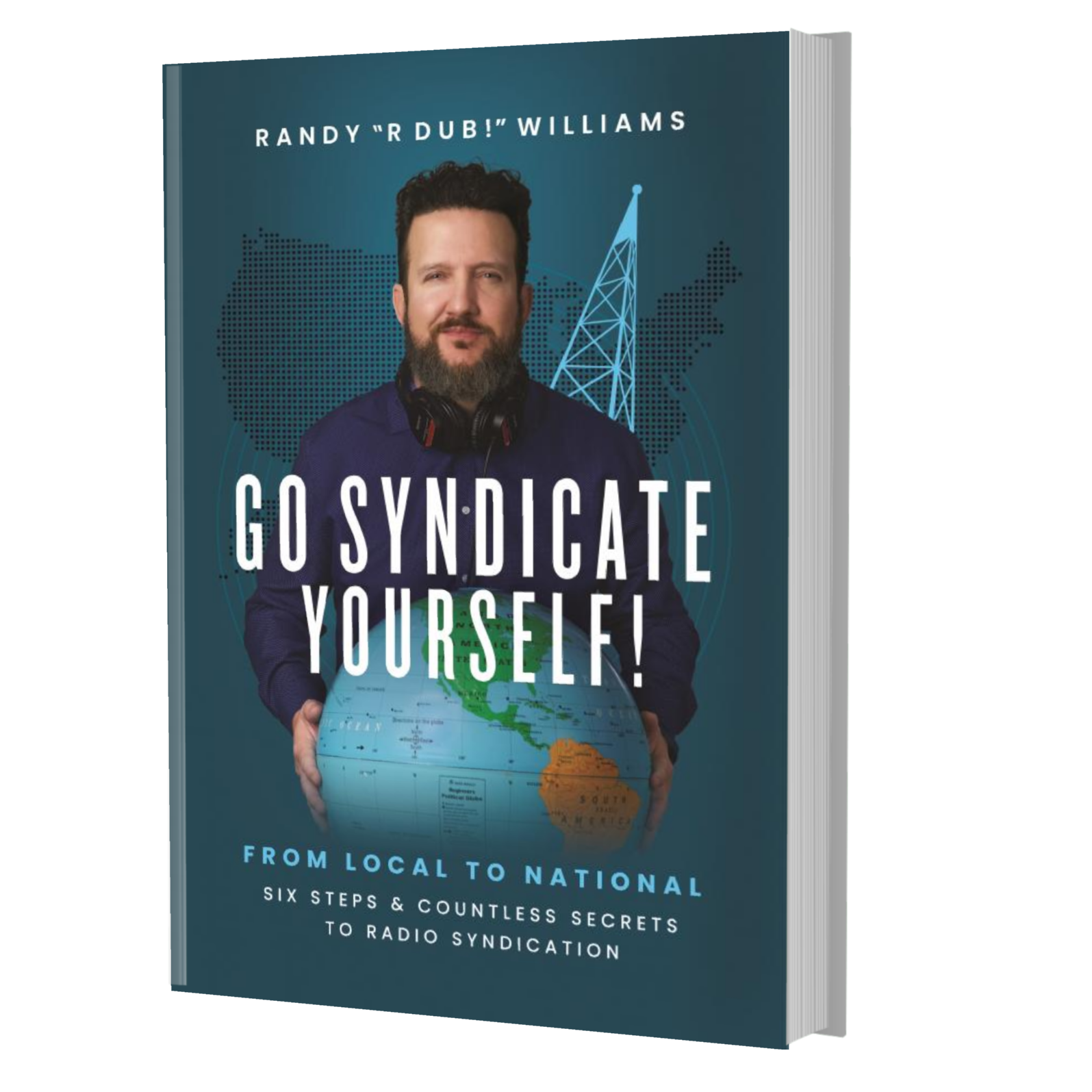Award-winning radio personality, program director, syndicator and entrepreneur, Randy “R Dub!” Williams has been in the radio game since the age of 15. His over 25 years in the business include successful stops in Phoenix, Los Angeles and San Diego, both on the air and in the programming chair. His 2009 syndication book, Coast to Coast helped pave the way for many up-and-coming syndicated talents while his 2011 radio documentary, “A.M. Mayhem” has received numerous awards.
Today, his Slow Jams empire includes four different radio shows heard on over 200 stations in 17 countries. R Dub! is the Director of Programming for Magic 92.5 and Z90 in San Diego. He writes this manual from both the perspectives of a syndicated host and program director.
But it’s not just about R Dub!’s story and playbook. This book contains specific advice from dozens of other highly-successful syndicated hosts of all formats, the program directors of major market radio stations who make the decisions on which shows to add, and the directors of the syndication companies, who explain just what they’re looking for in new programming. Scroll down to see just of few of the dozens of syndication pros featured in this book.
































